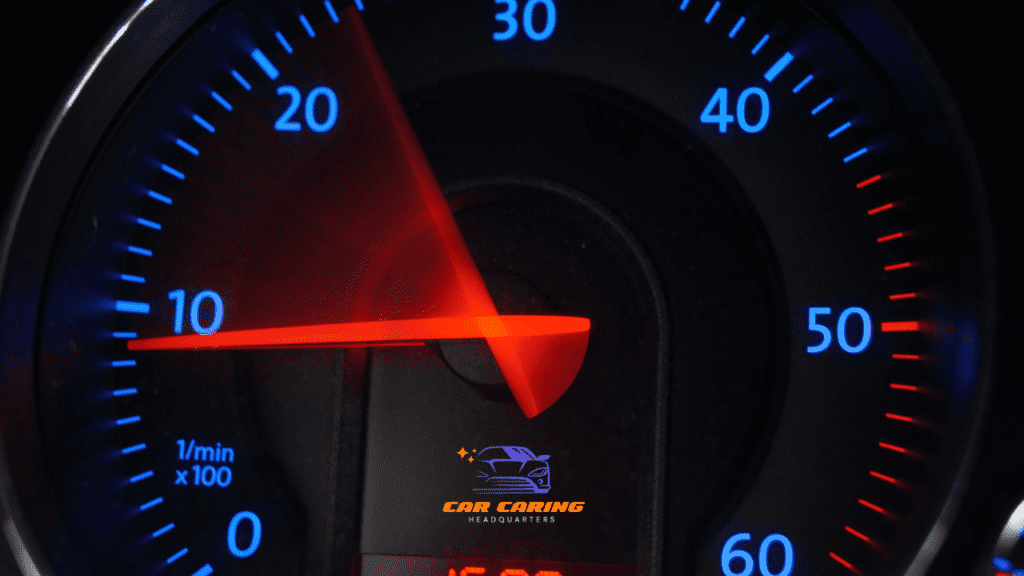Have you ever noticed your car’s engine RPM (Revolutions Per Minute) fluctuating unexpectedly when your vehicle is stationary?
It can be quite perplexing to witness your engine’s RPM needle rise and fall seemingly without reason. In this article, we will explore the reasons behind this issue and discuss potential solutions to address it.
When a car is parked, the engine is expected to maintain a steady idle RPM. However, if you observe your RPM going up and down irregularly, it indicates an underlying problem that requires attention. Fluctuating RPM can be an early warning sign of certain mechanical issues or system malfunctions within your vehicle.
Table of Contents
Understanding RPM (Revolutions Per Minute)
Before diving into the causes of fluctuating RPM, let’s understand what RPM represents.
RPM refers to the number of complete engine revolutions that occur within one minute. It provides a measure of the engine’s speed and is often displayed on the vehicle’s tachometer.
Reasons for Fluctuating RPM while Parked

Several factors can contribute to the fluctuation of RPM while your vehicle is parked. Let’s explore some of the common culprits behind this issue:
1. Faulty Idle Air Control Valve
The idle air control valve is responsible for regulating the engine’s idle speed. If this valve becomes faulty or gets clogged with dirt and debris, it may disrupt the proper airflow, leading to unstable RPM.
2. Vacuum Leaks
Vacuum leaks occur when there are unintended openings or cracks in the vacuum system of the engine. These leaks can introduce extra air into the engine, causing the RPM to fluctuate abnormally.
3. Dirty or Malfunctioning Mass Airflow Sensor
The mass airflow sensor measures the amount of air entering the engine and adjusts the fuel injection accordingly. If the sensor gets dirty or malfunctions, it may provide inaccurate readings, resulting in erratic RPM behavior.
4. Engine Misfire
An engine misfire refers to the incomplete combustion of fuel in one or more cylinders. This can be caused by various factors such as faulty spark plugs, ignition coils, or fuel injectors. Engine misfires can disrupt the smooth operation of the engine, leading to fluctuating RPM.
5. Faulty Throttle Position Sensor
The throttle position sensor monitors the position of the throttle plate and relays this information to the engine control unit. A faulty sensor can provide incorrect data, leading to inconsistent RPM readings.
6. Problems with Fuel System
Issues within the fuel system, such as a clogged fuel filter or a malfunctioning fuel pump, can disrupt the fuel delivery to the engine. Insufficient fuel supply can result in RPM fluctuations while the vehicle is parked.
Effects of Fluctuating RPM
Fluctuating RPM can have several effects on your vehicle. Firstly, it can cause vibrations and shaking, which can be felt throughout the car.
Additionally, it may lead to a rough and unstable idle, making it challenging to keep the engine running smoothly. Moreover, fluctuating RPM can adversely affect fuel efficiency and increase emissions.
Steps to Diagnose and Fix RPM Fluctuations

If you encounter fluctuating RPM while your vehicle is parked, it is essential to address the issue promptly. Here are some steps you can take to diagnose and resolve the problem:
1. Check for Error Codes
Using an OBD-II scanner, retrieve any error codes stored in the vehicle’s onboard computer. These codes can provide valuable insights into the specific components or systems that may be contributing to the RPM fluctuations.
2. Inspect and Clean Idle Air Control Valve
Inspect the idle air control valve for any signs of damage or clogging. If necessary, clean the valve to ensure proper airflow and functionality. In some cases, the valve may need to be replaced entirely.
3. Examine for Vacuum Leaks
Carefully inspect the vacuum hoses, intake manifold gaskets, and other related components for any signs of leaks or damage. Repair or replace any faulty parts to eliminate vacuum leaks and stabilize the RPM.
4. Clean or Replace Mass Airflow Sensor
If the mass airflow sensor is dirty, clean it using specialized sensor cleaner spray. If cleaning does not resolve the issue, consider replacing the sensor with a new one.
5. Address Engine Misfire Issues
Diagnose the cause of the engine misfire by checking the spark plugs, ignition coils, and fuel injectors. Replace any faulty components to restore proper combustion and prevent RPM fluctuations.
6. Test and Replace Faulty Throttle Position Sensor
If the throttle position sensor is suspected to be faulty, conduct a thorough test to confirm its malfunction. If necessary, replace the sensor with a new one to ensure accurate readings and stable RPM.
7. Verify Fuel System Components
Inspect the fuel system components, including the fuel filter and fuel pump, for any blockages or malfunctions. Address any issues found to maintain a consistent fuel supply and stabilize the RPM.
Regular Maintenance to Prevent RPM Fluctuations
To minimize the risk of RPM fluctuations and other engine-related issues, it is crucial to follow regular maintenance practices.
Regularly changing the engine oil, replacing the air filter, inspecting and replacing worn-out spark plugs, and maintaining a clean fuel system can help keep your engine running smoothly.
Conclusion
Fluctuating RPM while your vehicle is parked can be a frustrating experience. By understanding the potential causes behind this issue and following the appropriate diagnostic and repair steps, you can address the problem effectively.
Remember to perform regular maintenance to prevent RPM fluctuations and ensure the overall health of your vehicle’s engine.
FAQs
1. What are the common symptoms of a faulty idle air control valve?
Common symptoms of a faulty idle air control valve include irregular idle speed, stalling, and fluctuating RPM while the vehicle is stationary.
2. How can vacuum leaks affect the RPM of a parked vehicle?
Vacuum leaks introduce additional air into the engine, disrupting the air-to-fuel ratio and leading to unstable RPM.
3. What causes engine misfire and how does it impact RPM?
Engine misfire can be caused by issues with spark plugs, ignition coils, or fuel injectors. It can lead to rough idling and fluctuating RPM.
4. How often should the throttle position sensor be replaced?
The throttle position sensor does not have a specific replacement interval. However, if it malfunctions or provides inaccurate readings, it should be replaced.
5. Are there any preventive measures to avoid RPM fluctuations?
Regular maintenance, including timely oil changes, air filter replacements, and spark plug inspections, can help prevent RPM fluctuations and maintain a healthy engine.







